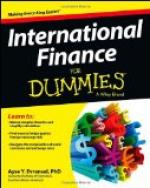An interesting book has lately appeared in America, called “Income,” in which the writer, Dr. Scott Nearing, of the University of Pennsylvania, draws a very sharp distinction between service income and property income, implying, if I read him aright, that property income is an unjust extortion. This is how he states his case:—[1]
“The individual whose effort creates values for which society pays receives service income. His reward is a reward for his personality, his time, his strength. Railroad president and roadmender devote themselves to activities which satisfy the wants of their fellows. Their service is direct. In return for their hours of time and their calories of energy, they receive a share of the product which they have helped to produce.
“The individual who receives a return because of his property ownership, receives a property income. This man has a title deed to a piece of unimproved land lying in the centre of a newly developing town. A storekeeper offers him a thousand dollars a year for the privilege of placing a store on the land. The owner of the land need make no exertion. He simply holds his title. Here a man has labored for twenty years and saved ten thousand dollars by denying himself the necessaries of life. He invests the money in railroad bonds, and someone insists he thereby serves society. In one sense he does serve. In another, and a larger sense, he expects the products of his past service (the twenty years of labor), to yield him an income. From the day when he makes his investment he need never lift a finger to serve his fellows. Because he has the investment, he has income. The same would hold true if the ten thousand dollars had been left him by his father or given to him by his uncle.... The fact of possession is sufficient to yield him an income.”
Now, in all these cases of property income which Dr. Nearing seems to regard as examples of income received in return for no effort, there must have been an effort once, on the part of somebody, which put the maker of it in possession of the property which now yields an income to himself, or those to whom he has left or given it. First there is the case of the man who has a title deed to a piece of land. How did he get it? Either he was a pioneer who came and




